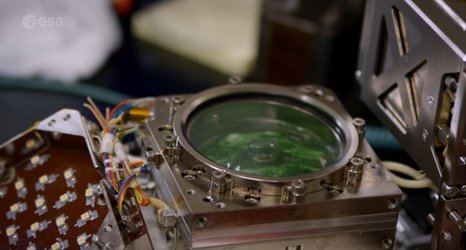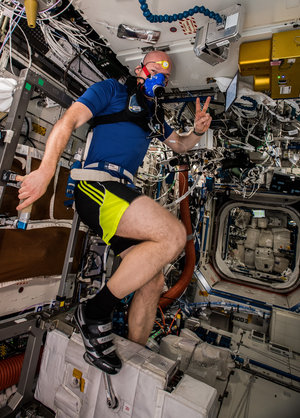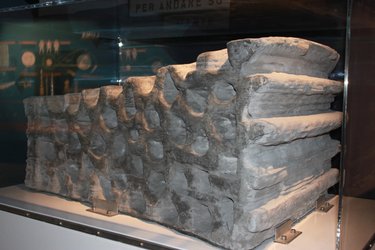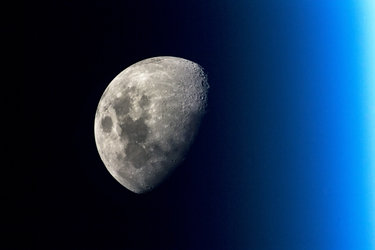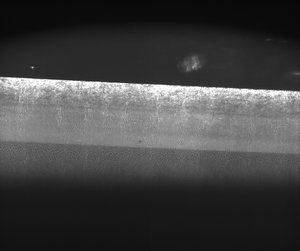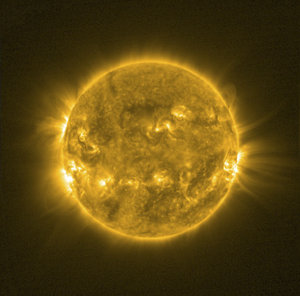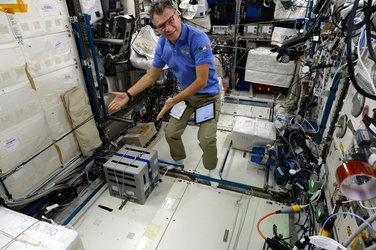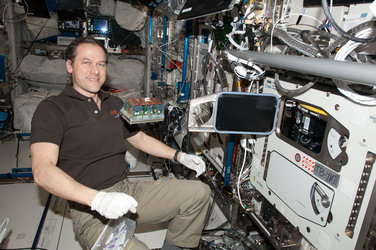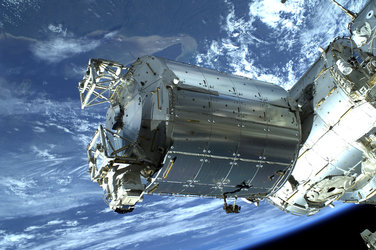Music for space
Music has long been known to affect people’s mood. A certain tune can lift you up or bring you to tears, make you focus, relax or even run faster. Now a study is investigating how the power of music may improve human performance in one of the most stressful and alien environments we know – space.
Music can help release a cocktail of hormones that have a positive effect on us: oxytocin, endorphin, serotonin and dopamine. Besides the pleasure we get from it, music can be used to prolong efficiency and reduce anxiety.
Stress factors in space can lead to disrupted sleep, impaired time perception and spatial orientation.
“Space appeared to me as the perfect testing ground to use anti-stress music,” says violin teacher Luis Luque Álvarez, whose ‘Music for space’ project puts the psycho-physiological research of music at the service of space exploration.

As a child, Luis dreamt of two things: playing violin in an orchestra and space travel.
In his thirties as a talented violinist in Hungary, he noticed some videos of astronauts playing instruments in space.
He started to research and learned that music is a part of the astronauts’ daily lives in space, from launch, when mission control plays music to the crews during the countdown, to orbit, where every astronaut has their own playlist to listen to in off-duty moments.
Could he scientifically select the best music to reduce the stress of a crew member?
Press play – Experimenting with music
Fast forward to the ‘Music for Space’ experiment, which ran last year at DLR’s Short Arm Human Centrifuge as part of the first Spin Your Thesis! – Human Edition.
Ten volunteers rode on a centrifuge, being spun until they felt one and a half times the weight of their bodies. Half of them listened to Beethoven’s ninth symphony and the Planet Earth II soundtrack by Hans Zimmer, Jasha Klebe and Jacob Shea, while the other five spun with no music.


Access the video
“Exposing people to repeated hypergravity could help us finding countermeasures to maintain wellbeing on space exploration missions,” explains David Green, education coordinator at the European Astronaut Centre in Cologne, Germany.
Coping with hypergravity is not always easy. Changes in the vestibular system can lead to disorientation and dizziness. Test subjects can become tense, anxious or even fearful.
The team from Hungarian and French universities evaluated the stress levels on the subjects by looking at muscle tone with a device called the Myoton, as well as measuring the levels of stress hormones and recording the subjects’ feelings.

The music samples were shortlisted after taking into account both the changes in speed of the centrifuge and the preferences of the listeners.
The study showed that music had a positive impact, but would need more tests to get statistically meaningful results. Participants had a tendency to prefer a slow pace, constant pitch music to ease through the acceleration.
Jasha Klebe, co-composer of the Planet Earth II music, said, “It's amazing to hear our music has had the ability to exist far beyond the series itself. I have such tremendous respect for anyone involved in space exploration and can only imagine the pressures astronauts endure.
“It's an incredible honour to have our music used in experiments by ESA. We wrote the music for Planet Earth II to evoke wonder, curiosity and the importance of preserving this natural world, so it's inspiring to hear our music included within a programme dedicated to exploring worlds beyond our own.”
Space oddities
Luis believes in music therapy beyond Earth, and says “My dream would be to play tailored sets of music to the crew in deep space missions. Mission control could pick up the playlist according to the needs of the mission, and astronauts could also make their choices according to their mood or goals.”

Today, there are two guitars, a keyboard and a saxophone on the International Space Station, but instruments would also be part of future trips, too. Scientists have found that playing an instrument can result in immediate benefits to several brain functions, strengthening memory and reading skills as well as increasing reaction times.
Back on Earth, the ‘Music for Space’ project aims to put the space music library at the service of communities in distress. “Music is not just leisure. It is a very special gift to humankind, to be used with care and intelligence,” concludes Luis.





